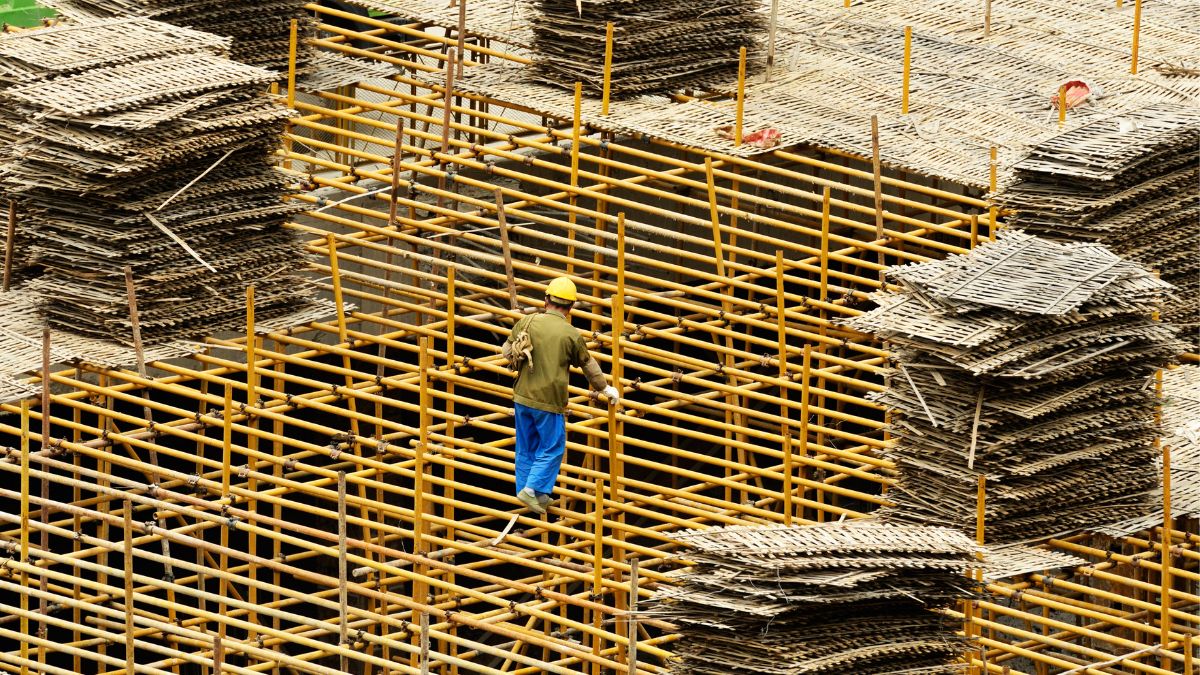Building your dream home or launching a commercial project is an exciting endeavor, but it requires proper planning and financial resources. Securing a construction loan is one of the essential steps in turning your vision into reality. In this article, we will guide you through the process of obtaining a construction loan, covering key aspects, benefits, challenges, and frequently asked questions to ensure you make informed decisions.

1. What Is a Construction Loan?
A construction loan is a short-term, high-interest loan used to finance the building of a home or a commercial structure. Unlike a traditional mortgage, which is used to purchase an existing property, a construction loan is specifically designed to fund construction costs and related expenses. These loans are typically disbursed in stages as the project progresses.
2. Types of Construction Loans
There are several types of construction loans tailored to different needs:
- Construction-to-Permanent Loan: Converts into a traditional mortgage once construction is complete.
- Stand-Alone Construction Loan: Covers construction costs only; requires a separate mortgage for the finished structure.
- Owner-Builder Loan: For those who plan to act as their own contractor.
- Renovation Loan: Designed for significant home remodeling or upgrades.
Understanding the differences between these loans helps you choose the one that suits your project.
3. Benefits of Construction Loans
Construction loans offer several advantages:
- Tailored to Specific Needs: Funds are disbursed as needed for each stage of construction.
- Flexible Terms: Some lenders offer customizable repayment schedules.
- Supports Diverse Projects: Suitable for residential, commercial, and renovation projects.
- Opportunity to Build Equity: Building a property often increases its value compared to purchasing an existing one.
4. Key Requirements for a Construction Loan
Before applying for a construction loan, you need to meet specific requirements:
- Detailed Construction Plan: Include architectural designs, building permits, and timelines.
- Experienced Contractor: Provide the credentials of a licensed and reputable contractor.
- Good Credit Score: A credit score of 680 or higher is typically preferred by lenders.
- Down Payment: Most lenders require a down payment of 20% to 25%.
- Proof of Income: Show consistent income to demonstrate repayment ability.
5. Steps to Secure a Construction Loan
Step 1: Research and Compare Lenders
Identify lenders that specialize in construction loans and compare their interest rates, terms, and fees.
Step 2: Gather Necessary Documentation
Prepare financial documents, construction plans, and contractor information.
Step 3: Apply for Pre-Approval
Submit your application and supporting documents to get pre-approved.
Step 4: Finalize the Loan Agreement
Review the loan terms, including interest rate, repayment schedule, and disbursement process.
Step 5: Begin Construction
Once approved, the lender disburses funds in phases based on construction milestones.

6. Common Challenges and How to Overcome Them
- High Interest Rates: Shop around for competitive rates and negotiate with lenders.
- Complex Approval Process: Work with experienced professionals to prepare accurate documentation.
- Unforeseen Delays: Include contingency funds in your budget to address unexpected issues.
- Cost Overruns: Regularly review expenses and adjust plans to stay within budget.
7. Choosing the Right Lender
Selecting the right lender is crucial to securing a construction loan. Consider the following factors:
- Reputation: Look for reviews and testimonials from past clients.
- Experience: Choose a lender with expertise in construction financing.
- Customer Service: Ensure the lender offers clear communication and support throughout the process.
- Flexibility: Opt for lenders willing to tailor loan terms to your needs.
8. Managing Construction Loan Funds
Proper management of loan funds is essential to prevent financial missteps. Here are some tips:
- Set a Realistic Budget: Factor in all potential costs, including permits and materials.
- Track Expenses: Use software or spreadsheets to monitor spending.
- Communicate with Contractors: Maintain regular updates to ensure milestones are met.
- Request Disbursements Promptly: Submit requests for funds as soon as each phase is complete.
9. Transitioning to a Permanent Mortgage
If you opt for a construction-to-permanent loan, the process includes:
- Completion Inspection: The lender inspects the finished property to ensure it meets agreed standards.
- Loan Conversion: The construction loan transitions into a regular mortgage.
- Repayment Begins: Monthly payments on the permanent loan commence.

10. Tips for a Successful Loan Application
Increase your chances of approval with these strategies:
- Improve Your Credit Score: Pay down debts and resolve credit issues.
- Save for a Larger Down Payment: A higher down payment reduces lender risk.
- Work with Professionals: Hire a reliable contractor and financial advisor.
- Be Transparent: Provide accurate information and promptly respond to lender inquiries.
11. The Role of an Architect and Contractor
The architect and contractor play pivotal roles in the success of your construction loan. They provide:
- Architectural Plans: Detailed designs required by the lender.
- Cost Estimates: Accurate budgeting for materials and labor.
- Construction Timeline: A clear schedule to coordinate loan disbursements.
Partnering with experienced professionals ensures smoother loan processing and project execution.
Table of Contents
12. Conclusion
Securing a construction loan is a vital step in realizing your building dreams. By understanding the types of loans, preparing necessary documentation, and working with reliable lenders and professionals, you can navigate the process with confidence. Despite the challenges, careful planning and financial management will help you achieve your goal of creating a space that meets your needs and aspirations.

FAQs
Q: How long does it take to get a construction loan approved? A: The approval process typically takes 30 to 60 days, depending on the lender and complexity of the project.
Q: Can I use a construction loan for renovations? A: Yes, renovation loans are a type of construction loan designed for significant upgrades to existing properties.
Q: What happens if my project exceeds the budget? A: You may need to apply for additional funding or adjust the scope of the project. Including a contingency fund can help mitigate this risk.
Q: Do I need a high credit score for a construction loan? A: A credit score of 680 or higher is preferred, but some lenders may consider lower scores with additional conditions.
Q: Are construction loans available for owner-builders? A: Yes, owner-builder loans are available, but they often require extensive experience and detailed plans to gain approval.
Building your dream project is a significant milestone. With the right construction loan, you can turn your vision into reality and create a space that reflects your aspirations.
